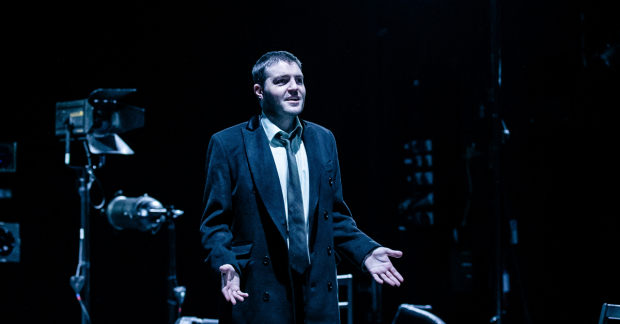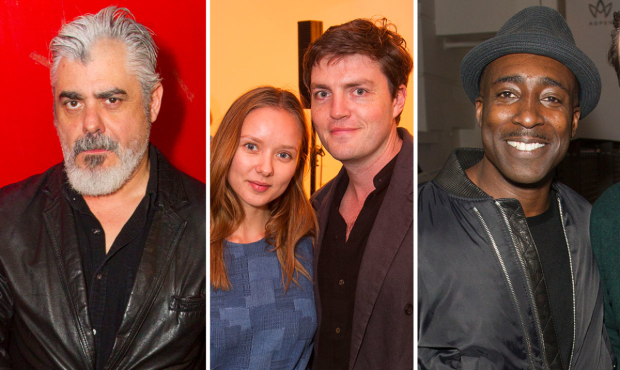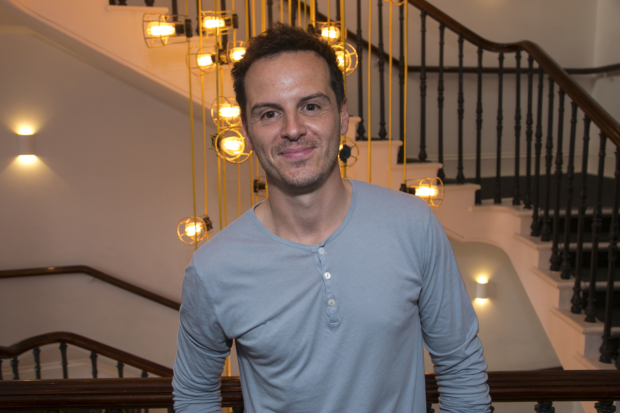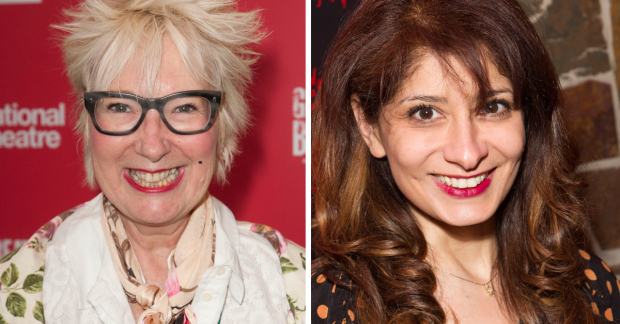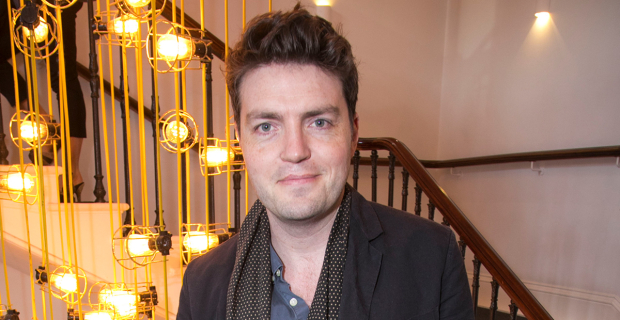Review: Don Carlos (Exeter Northcott)
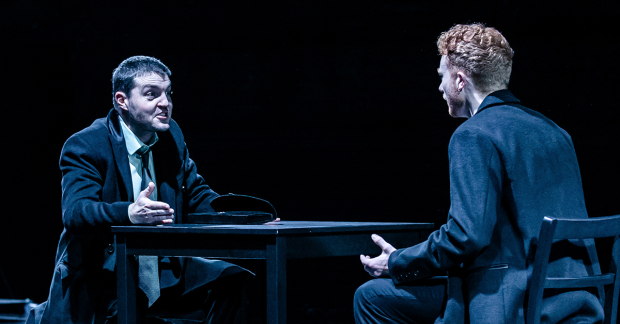
© The Other Richard
Europe in turmoil, a marriage struggling under a torrent of suspicion and jealousy, political posturing and a good man with a vision of a better way. Friedrich Schiller's story of Don Carlos, heir to the Spanish throne, has themes which easily resonate for modern audiences.
Epic in length (over three hours) it is, however, intimate in scale. Director Gadi Roll, designer Rosanna Vize and lighting director Jonathan Samuels, pare back the play leaving audiences with little to distract them from the text. The only splash of colour in this bleak, black, landscape is a flash of a bright, rich coat lining or the literal red carpet that is rolled out for a royal arrival which serves to underline the importance of a scene.
Don Carlos is a co-production between three regional theatres and Ara, a new company set up by Tom Burke and Gadi Roll. As a debut choice, this play is bold, and risky. I suspect the odd handful of seats empty after the interval were patrons who came to see enigmatic detective Strike or an earnest Musketeer and found themselves struggling with a very weighty drama and a complex plot.
Don Carlos is the son of King Philip II of Spain. Both men are in love with the same woman – the King's wife, Elizabeth, a Princess from the French court. In a turbulent Europe, this union is meant to secure allegiances but delivers only unrest.
Don Carlos's friend, the Marquis of Posa (Tom Burke) could be the man to pour oil on troubled waters. He has the Prince's confidence, the friendship of the Queen and – in a powerful speech brilliantly delivered – offers a vision of the future that appeals to the King (a strong performance from Darrell D'Silva).
Posa is an idealist and a free-thinker who will speak his mind. The King finds himself moved by his honesty and rhetoric and Posa's plea to "give men the right to think". But Posa is also a pragmatist and sees that the future of the continent of Europe calls for decisive action. One that means risking his own life.
Cleverly but starkly staged, the ensemble cast is (for the most part) still and controlled, devoid of any emotion which would obscure the text. It is the rival royals who explode with rage, much of it misdirected.
Don Carlos offers a lot and offers audiences plenty to think about. The theme of freedom is a powerful one, particularly in the hands of the consistently good Tom Burke. But I left feeling that its political and personal punch slightly missed the mark.



